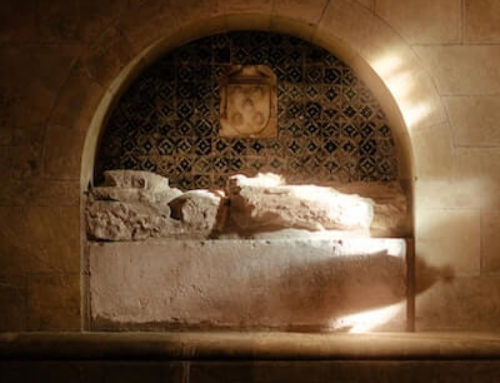Luke 20:9 He went on to tell the people this parable: “A man planted a vineyard, rented it to some farmers and went away for a long time. 10 At harvest time he sent a servant to the tenants so they would give him some of the fruit of the vineyard. But the tenants beat him and sent him away empty-handed. 11 He sent another servant, but that one also they beat and treated shamefully and sent away empty-handed.12 He sent still a third, and they wounded him and threw him out.
13 “Then the owner of the vineyard said, ‘What shall I do? I will send my son, whom I love; perhaps they will respect him.’
14 “But when the tenants saw him, they talked the matter over. ‘This is the heir,’ they said. ‘Let’s kill him, and the inheritance will be ours.’ 15 So they threw him out of the vineyard and killed him.
“What then will the owner of the vineyard do to them? 16 He will come and kill those tenants and give the vineyard to others.”
When the people heard this, they said, “God forbid!”
17 Jesus looked directly at them and asked, “Then what is the meaning of that which is written:
“‘The stone the builders rejected
has become the cornerstone’?
18 Everyone who falls on that stone will be broken to pieces; anyone on whom it falls will be crushed.”
19 The teachers of the law and the chief priests looked for a way to arrest him immediately, because they knew he had spoken this parable against them. But they were afraid of the people.
Big Idea: Pride puts us at odds with God.
Jesus finishes his argument against the priests and elders in this passage. After quieting them with his initial response, and then embarrassing them with a parable, it seems almost as if Christ is finally fed up with this final parable. Here we see the story of some tenants who ought to be working the land. But rather than working it for the owner, they were completely disregarding the authority of the owner. Christ was very rightly pointing out that it didn’t matter by what authority he was teaching because the chief priests and elders would disregard it. He was also pointing out that they were going to kill the son. They definitely got the main point that they were the subject of the parable, but not that it was futile and even deadly to go through with their plans. They were so outraged that they wanted to immediately arrest him, but couldn’t because of his popularity.
The stone that the builders rejected is referring to Psalm 118:22, but Christ’s application is from Daniel in which Nebuchadnezzar dreams of a rock that will crush the others and fill the earth. The priests and elders viewed this as a political threat and not an existential one. They believed that they could avoid Christ’s threats by simply killing him, just as the tenants in the parable thought that they could inherit the vineyard by killing the son. Legally, this idea was just as foolish and absurd during Christ’s day as it would be today. But the priests and elders were too blinded by their own pride to even realize how foolish they were being.
Application: Would would it take to remain on God’s good graces? By simply recognizing his authority, and serving him! We are called to work the land for God today. Not to make ourselves look good. In fact, not even to spend time doubting ourselves or worrying about our failures. But to serve God and others. We don’t have time for arrogance or insecurity. Just loving service (and worship!). Enjoy your day!






